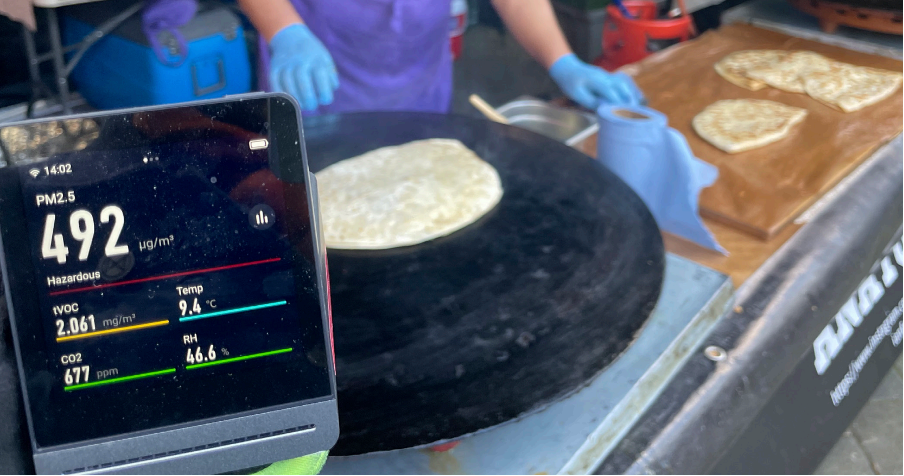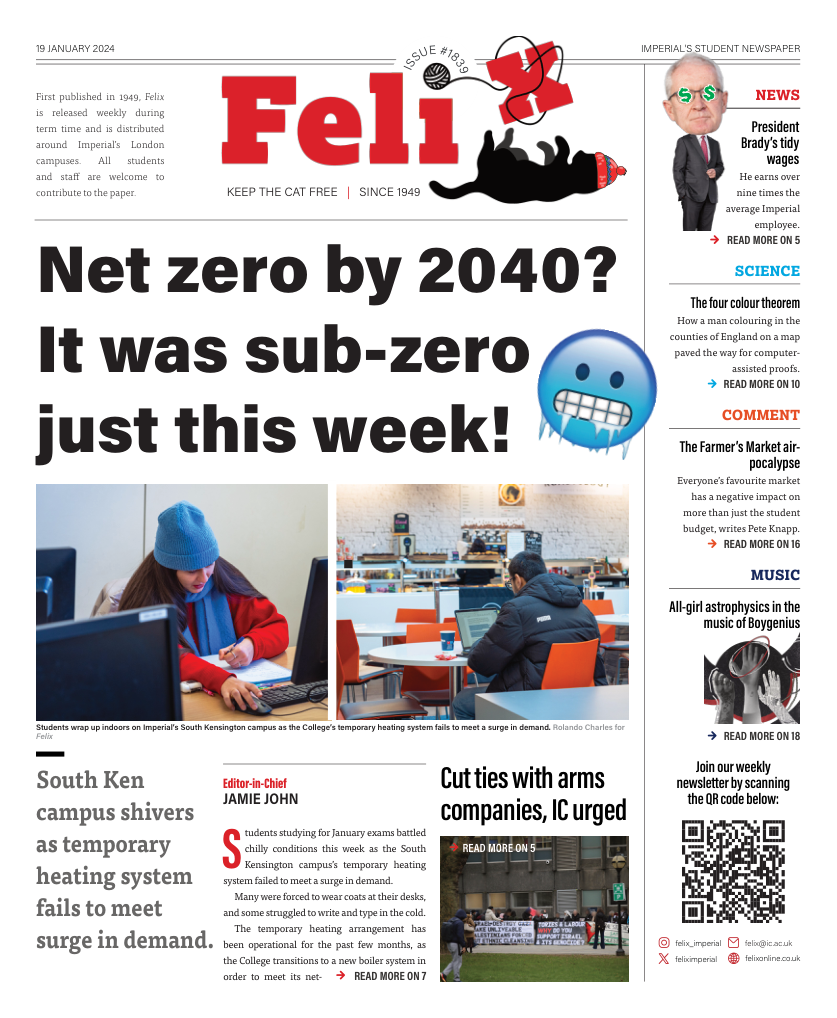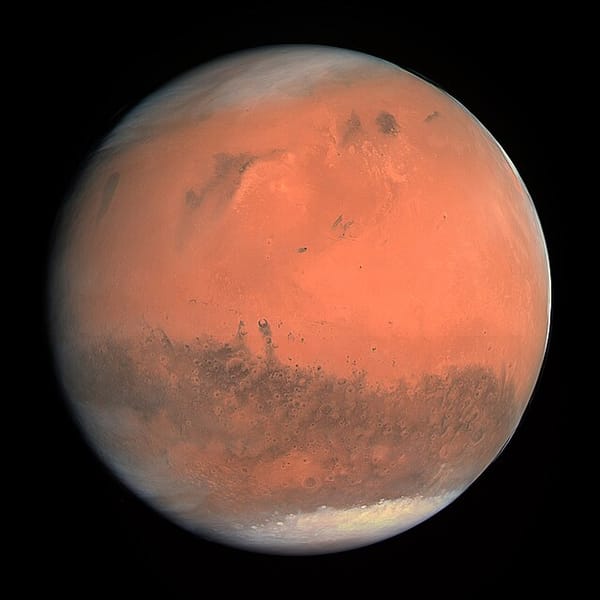The Farmers’ Market air-pocalypse
Everyone’s favourite market has a negative impact on more than just the student budget.

Anyone based at the South Kensington campus will be familiar with the Farmers’ Market, which takes place every Tuesday. With its many adoring fans, the Market is known for bringing people throughout the community together, from both the College and the wider public. Despite how expensive it is, many would argue that, for a weekly treat, you might as well try something new from there.
Sounds amazing, right?
Not quite. I work in air quality at Imperial College, and therefore I am painfully aware that this weekly event causes particulate air pollution to spike around campus. So, how bad is the spike, and what can be done?
Firstly, let me explain how air pollution is measured. The ‘healthy range’ for the mass concentration of particles under 2.5 micrometres (called PM2.5) is an average of 5 micrograms per cubic metre (μg/m3) over the year. We study the concentration of small particles because they cause inflammation that may lead to strokes, cancers, and even diabetes. Worryingly, the readings around the Farmers’ Market exceed 500 μg/m3 ... over 100 times the maximum limit recommended by the World Health Organisation (WHO).
This air pollution seeps into indoor spaces as well – I measured up to 25 μg/m3 in a room nearby that had all the windows closed. Again, that’s over five times the healthy maximum.
For context, according to the research published by the Greater London Authority, the average level across London was 13.3 μg/m3 in 2016. In their 2013 paper, exposure scientist Itai Kloog and others found that for every 10 μg/ m3 increase in PM2.5 exposure there was a 2.8% increase in PM-related mortality, for short-term exposure.
According to the Environmental Research Group at Imperial, air pollution affects every organ in the body and causes between 28,000 and 36,000 premature deaths in the UK each year. It also impacts people unequally – the young, the elderly, people from deprived communities, and people with existing health conditions are most at risk. Air pollution also generates £20bn in health costs in the UK every year.
Clean air is essential for our health and the health of the planet. While in reality, there is no ‘safe limit’ on air pollution, the guidelines from the WHO are helpful to provide some idea of what is acceptable.
The particulate air pollution at the Farmers’ Market comes from cooking at high temperatures. This burns oils and other biomass, turning them into fine particles that can sometimes be seen as smoke, though they can be invisible when small. These particles are in highest abundance when cooking meats, wood, and spices.
Moreover, overfrying tends to produce the highest emissions out of all common UK cooking methods. In general, the lowest air pollution comes from cooking low-fat foods (these tend to be plant-based) at low temperatures, while using non-burning methods such as electric elements or induction hobs.
Keeping these in mind, both meat consumption and gas burning (gas is a fossil fuel) need to be drastically reduced to meet our climate targets and to reduce the scale of climate chaos.
Cooking on gas also creates harmful carbon monoxide and nitrogen dioxide. Cooking at home is where most people have their highest air pollution exposure.
To reduce air pollution when cooking at home: open a window when cooking; use the microwave rather than frying or boiling on a gas hob; turn on the ventilation hood if it extracts outside; cook less meat or animal products; and purchase an air quality monitor to keep track of conditions indoors, and help make healthier decisions.
But this article is not about how to avoid air pollution. It is to stop air pollution at the source. People working at the Farmers’ Market and surrounding buildings should not be exposed to a weekly dose of air pollution from cooking meats on solid fuels. The employees of the food stands and the College, and the students, have a right to a healthy work environment. To emphasise, I do not think the Farmers’ Market should be abolished. We can keep the Farmers’ Market, but we must change what is being served and how it is being cooked.
Many researchers from Imperial College London advise the UK government and the London Mayor on national and city-wide air pollution measures, yet efforts to reduce the air pollution around the university itself are lacking. Sometimes, we need to look at what is happening right under our nose. Together, we must stop the Farmer’s Market air pollution problem.









